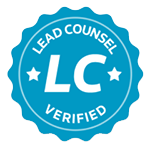If you are employed as a custodian in a school, health care facility or elsewhere, you may not be overly concerned about contact with bloodborne pathogens. However, they can be a very real threat to your health. Custodians should be knowledgeable and prepared to protect themselves.
These pathogens cause serious diseases such as HIV, Hepatitis B and Hepatitis C. Being aware of the hazards of contact with them can save you from contracting these illnesses.
Your risk is higher than you might think. If someone cuts themselves in a restaurant kitchen, there can be blood left on a counter. A person could have discarded a used hypodermic needle in an unsuitable receptacle in a medical facility. You, as the custodian whose job it is to collect the trash or clean up, may be exposed.
Does the OSHA Bloodborne Pathogens (BBP) standard apply to you?
The Occupational Safety and Health Administration, or OSHA, formulated the BBP standard to clarify safety measures that it believes can guard employees. It includes provisions for no-cost vaccinations for Hepatitis B for employees who are considered at risk as well as recordkeeping requirements, employee training and an exposure control strategy for employers.
Don’t automatically assume that this standard covers you. It’s at the discretion of your employer whether it does or not, depending upon if they believe your job puts you at sufficient risk.
Avail yourself of all safety measures
Personal protective equipment (PPE) is very important. You should have items such as a face shield, disposable gloves, a gown, and a mouthpiece and eye protection or be able to access them when needed. Get educated about situations you may encounter involving bloodborne pathogens. Free training should be offered to you by your employer.
Be prepared for anything you have to deal with. That means comprehensive training and PPE. If you contract a bloodborne illness because of your work, you may be able to benefit from workers’ compensation.



